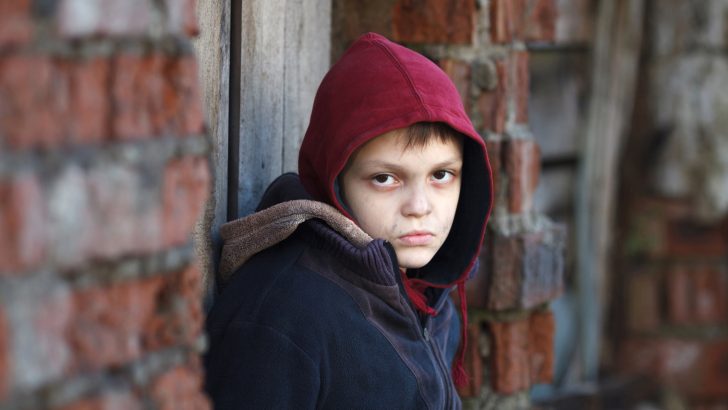Housing crisis is driving youth leaving care to drugs and prison
Children leaving State care face spiralling into crime and addiction due to an inability to find housing, with the situation getting “definitely worse” according to campaigners.
The Peter McVerry Trust is supporting dozens of young adults who turn 18 and leave State care in dedicated housing, but this accommodation is already “stretched”.
Speaking to The Irish Catholic, founder of the charity Fr Peter McVerry said State care is hugely expensive and that keeping children out of homeless services is “critical” to saving lives.
“If you are put out at 18 into adult homeless services, that money has all been wasted, as some people will go downhill very quickly. Depressed, fed up, mixing with all sorts of difficult adults with addiction and mental health issues, they will – in my experience – quickly spiral down into drugs, into crime and eventually into prison,” Fr McVerry said.
“Housing is particularly critical for young people leaving care. Because if we can prevent them from sliding down into depression, into crime, into drugs – that saves their lives and it also saves the State a fortune.”
Head of Youth Services at Focus Ireland, Neil Forsyth, said the housing situation for care leavers is “definitely worse” now than before Covid, as the private rental sector is “effectively gone as an option” and accommodation offered by local authorities is “patchy” at best.
“The situation is dreadful, and aftercare social workers are struggling. It is the single biggest challenge they face and it is still a massive stress for young people coming up to 18 years of age, who are asking ‘where am I going to live?’” Mr Forsyth said.
“It’s bad enough being in care but also worrying about having to leave at 18 – unlike other kids in the population who are staying on with their parents into their 20s or 30s – is very distressing. We do lose quite a number of young people when they leave care because of the awful loneliness and isolation and all the unresolved issues that they bring with them after being in the care system in the first place,” he said.
He added that many children who leave State care do wish to be reunited with their parents “but sadly a lot of those situations break down pretty quickly and they can end up in homelessness”.
Tusla’s aftercare service provides a range of services for eligible young people from the ages of 18 to 21, or 23 if the young person is in full time education or accredited training. In a statement to The Irish Catholic, Tusla, the Child and Family Agency, stated that at the end of Q4 2024, there were 2,935 young people in receipt of aftercare services. Of these, 2,196 (75%) were 18-22 years inclusive and 739 (25%) were under 18 years.
Tusla is currently struggling to employ social workers and faces significant staff shortages. According to its most recent figures the agency has 67 aftercare workers and 10 aftercare managers for almost 3,000 young people, averaging out at 38 cases per social worker.
Mr Forsyth, who is also the Chairperson of the Irish Aftercare Network Committee, said that “20 is supposed to be the caseload they have, and even at 20, how often can you see a young person if you have that caseload? What kind of support can you give them? It’s very, very minimal”.
Director of Child and Family Services for The Peter McVerry Trust, Tanya Blyth, said that the their ‘semi-independent’ dedicated aftercare housing focuses on helping young people build skills for independent living.
“We’ve been working with Tusla and with some of the local authorities looking at different options… what we’re seeing at the moment obviously is that the housing crisis is very significantly impacting care leavers” as private landlords will overlook them, Ms Blyth said, adding that the charity’s services “are stretched”.
“I suppose where we’re finding difficulty is that you are seeing placements coming to an end and if young people haven’t sourced something out, sometimes the alternative is going into homeless services for a period of time. We’re trying to do what we can to provide alternative solutions but it definitely is more of a feature now,” she said.
With the number of care leavers due to age-out of the care system known each year, Ms Blyth said that the charity, along with local authorities and Tusla, are trying to come up with housing solutions “and come up with the right level of support at the right stage of the young person’s journey”.
In a statement to The Irish Catholic, a Tusla spokesperson said: “When an eligible young person in care turns 16 years of age, their social worker refers them to the aftercare service to begin planning for their future for when they leave care. As part of this preparation, the aftercare worker works with the young person and important people in their lives to assess their needs, which will inform the development of their aftercare plan.
“The assessment takes account of all aspects of the young person’s need, including their accommodation, as they transition into adulthood. Tusla’s aftercare drop-in service is also available to anyone of any age who has spent time in care and needs advice or guidance, including with finding accommodation. Aftercare is a voluntary service and requires the engagement of the young person concerned.”


 Chai Brady
Chai Brady
